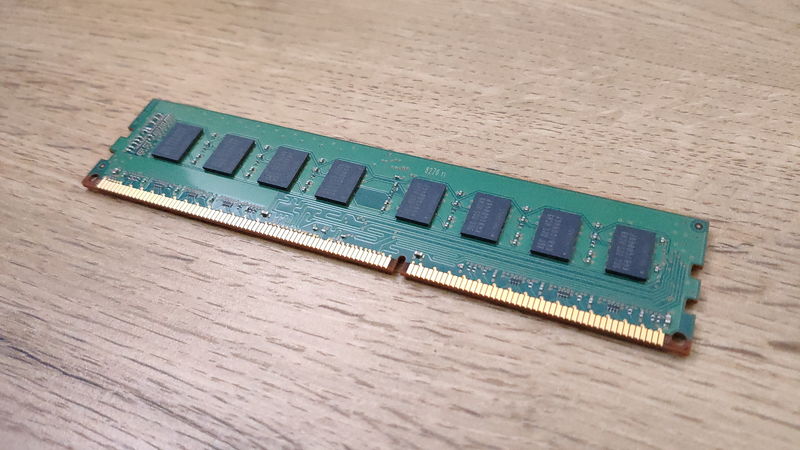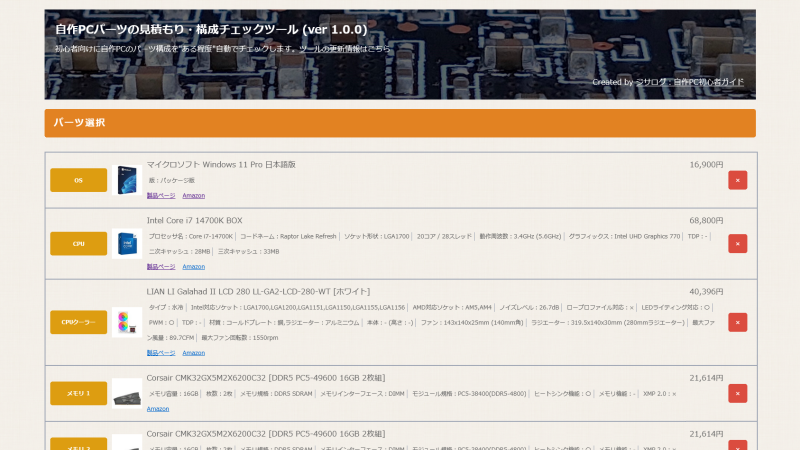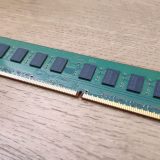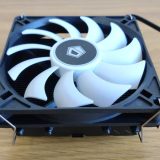Have you ever wondered what kind of memory other people choose for their custom-built PCs, or which specifications are considered important?
To answer these questions, various statistics have been compiled based on the parts selected using the “Custom PC Parts Estimation and Compatibility Check Tool” that has been developed and managed.
The data is summarized in graphs showing the memory popularity ranking, price range, manufacturers, and the selection rates by different specifications and features. This information can help provide an overall picture of memory for custom PCs.
In addition to memory, there is also analysis of other PC parts and the overall custom PC market, so please check it out for reference.
– The data is based on information from the Custom PC Tool.
– Data period: From 2024/5/9 to 2024/08/09 (about 3 months)
– Number of data samples: About 5,000
– The vertical axis of the graphs shows the selection rate by users
– For better readability, the graphs focus on the main volume zones, so the total may not add up to 100%.
Select PC parts and online stores to instantly generate an estimate, check compatibility, and calculate power requirements. You can save up to five different builds, making it easy to try out multiple configurations.
≫ Tool:PC Parts Estimation & Compatibility Check Tool
Table of Contents
Basic Data on Memory
First, the most interesting points such as popularity ranking, manufacturers, and price range will be introduced.
Memory Popularity Ranking
| 1 |  | crucial CP2K16G56C46U5 |
3.6% | ||
| 2 |  | crucial CP2K16G4DFRA32A |
3.6% | ||
| 3 |  | Team CTCWD532G6000HC30DC01 |
3.5% | ||
| 4 |  | Corsair CMH32GX5M2B5600C40W |
3.4% | ||
| 5 |  | CFD W4U3200CS-16G |
3.3% | ||
| 6 |  | crucial CP2K32G56C46U5 |
3.1% | ||
| 7 |  | crucial CT2K16G48C40U5 |
2.4% | ||
| 8 |  | Corsair CMK32GX5M2A4800C40 |
2.2% | ||
| 9 |  | crucial CT2K16G56C46U5 |
1.9% | ||
| 10 |  | Corsair CMH32GX5M2B6000C30W |
1.6% | ||
| 11 |  | CFD W5U5600CS-16G |
1.5% | ||
| 12 |  | crucial CT2K8G48C40U5 |
1.4% | ||
| 13 |  | crucial CT2K16G52C42U5 |
1.4% | ||
| 14 |  | ADATA AD5U480016G-DT |
1.3% | ||
| 15 |  | Corsair CMK16GX5M2B5200C40 |
1.2% | ||
| 16 |  | サンマックス SMD4-U32G48H-24R-D |
1.1% | ||
| 17 |  | サンマックス ARD5-U32G88MB-48B-D |
1% | ||
| 18 | 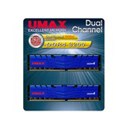 | UMAX UM-DDR4D-3200-32GBHS/B |
0.8% | ||
| 19 |  | Silicon Power SP016GBLFU266B02 |
0.8% | ||
| 20 |  | Corsair CMH32GX5M2B5200C40W |
0.8% | ||
| 21 |  | Corsair CMH32GX5M2E6000C36W |
0.8% | ||
| 22 |  | crucial CT2K16G4DFRA32A |
0.7% | ||
| 23 |  | crucial CT2K8G4DFRA32A |
0.7% | ||
| 24 |  | CFD W5U4800CS-16G |
0.7% | ||
| 25 |  | Corsair CMK32GX5M2B5200C40W |
0.7% | ||
| 26 |  | Corsair CMH32GX5M2D6000Z36K |
0.7% | ||
| 27 |  | Corsair CMK32GX5M2B5600C40W |
0.6% | ||
| 28 |  | Corsair CMK32GX5M2B5600C40 |
0.6% | ||
| 29 | 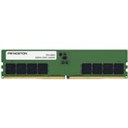 | プリンストン PD5-4800-16GX2 |
0.6% | ||
| 30 |  | サンマックス SMD4-U16G48H-32AA-D |
0.6% | ||
| 31 |  | Corsair CMH32GX5M2B6000C36 |
0.6% | ||
| 32 |  | Corsair CMK32GX5M2X6200C32 |
0.6% | ||
| 33 |  | CFD W4U3200CS-8G |
0.6% | ||
| 34 |  | Silicon Power SP016GBLFU320B22 |
0.6% | ||
| 35 |  | CFD W4U2666CS-8G |
0.5% | ||
| 36 |  | キングストン KF560C36BBEAK2-16 |
0.5% | ||
| 37 |  | CFD Selection W4U2400CM-8GQ |
0.5% | ||
| 38 |  | Corsair CMH32GX5M2B6600C38 |
0.5% | ||
| 39 |  | ESSENCORE KLEVV KD4AGUA80-32N220D |
0.5% | ||
| 40 |  | crucial CT16G48C40U5 |
0.5% | ||
| 41 | 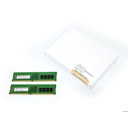 | サンマックス ARD4-U32G48HB-24R-D |
0.5% | ||
| 42 |  | キングストン KF560R32RBE-32 |
0.4% | ||
| 43 |  | CFD W5U4800CS-8G |
0.4% | ||
| 44 |  | Corsair CMK64GX5M2B5200C40W |
0.4% | ||
| 45 |  | CFD W5U5200CS-16G |
0.4% | ||
| 46 |  | Corsair CMK32GX4M2E3200C16 |
0.4% | ||
| 47 | 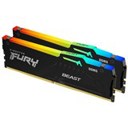 | キングストン KF560C40BBAK2-64 |
0.4% | ||
| 48 |  | ADATA AD5U48008G-DT |
0.4% | ||
| 49 |  | ESSENCORE KLEVV KD48GU880-32N220D |
0.4% | ||
| 50 |  | Corsair CMK32GX4M2A2666C16 |
0.4% |
Memory modules with 16GB and 32GB capacities are popular, and it seems that sets of two modules are often chosen to enable dual-channel configuration.
Also, memory with heat sinks is popular as well.
Memory Manufacturers
Regarding memory manufacturers, Corsair is the most selected, followed by Crucial and CFD.
Other well-known brands often seen by custom PC users include Team, Kingston, and G.Skill.
There are many other manufacturers, but choosing from these brands is generally a safe choice.
Personally, Crucial or CFD are usually selected when building a PC, so it was surprising to see Corsair as the most popular.
Memory Price Range
In terms of price range, about 85% of memory modules are under 30,000 yen.
Prices vary greatly depending on capacity, specifications, and features, but 16GB modules are usually around 10,000 to 15,000 yen, and 32GB modules are about 20,000 to 30,000 yen.
Total Memory Capacity
For total memory capacity per product, 32GB is the most popular, with 16GB and 64GB being about the same.
For 3D games, 16GB is enough, for gaming plus streaming or video editing, 32GB is recommended, and for more advanced video editing, 64GB is a good target.
This data is about the total memory per product, but for the total memory capacity of the entire custom PC, see the explanation in the overall custom PC configuration.
Basically, most users only install one set, so there is not much variation.
Memory Standard
DDR5 is now the mainstream memory standard.
When DDR5 first appeared, it was about 1.5 to 2 times more expensive than DDR4, but recently DDR5 prices have stabilized and become more affordable.
≫ Related article: Explaining the Three Memory Standards for Custom PCs: Memory Type, Module Type, and Speed
Data by Memory Specifications and Features
Next, the data is aggregated by specifications and features.
However, when choosing memory, the main criteria are usually capacity, price range, and manufacturer. It is likely that users selected memory based on these factors, and the resulting specifications and features were incidental.
In other words, it is difficult to distinguish whether a part was chosen for a specific feature, or if it just happened to have that feature based on the main criteria. Please keep this in mind when reviewing the data.
Number of Memory Modules
For the number of memory modules per product, there are options for 1, 2, 4, and 8 modules, but sets of 2 modules are overwhelmingly popular.
Using two modules in a dual-channel configuration increases data transfer speed compared to a single module.
Also, smaller motherboards often have only two slots, so two modules are naturally chosen. Even with four slots, it is common to leave two slots open for future upgrades.
≫ Related article: What is Dual Channel Memory? Double the Speed and Bandwidth with Two Modules!
Memory Data Transfer Speed
Memory data transfer speeds commonly selected are 4800 (about 38.4GB/s) and 5600 (about 44.8GB/s) for DDR5, and 3200 (about 25.6GB/s) for DDR4.
However, data transfer speed is not a very important criterion for most users, so it is not necessary to focus too much on it.
Those who care about transfer speed can use this as a reference.
Presence of Memory Heat Sink
About 55% of selected memory modules come with a heat sink.
A heat sink makes the memory look more stylish and improves cooling performance.
Therefore, for custom PCs where even the parts can be customized, having a heat sink is desirable.
However, this also increases the price, so it is important to consider the budget.
![]() Ken-san
Ken-san
ECC Support for Memory
ECC is a technology for detecting and correcting memory data errors.
This is a feature for servers, so general custom PC users usually choose non-ECC memory.
≫ Related article: What is ECC Memory? Detecting and Correcting Data Errors
Registered Memory Support
Registered memory is a technology that reduces the load on the entire system.
This is also a server feature, so general custom PC users usually choose non-registered memory.
≫ Related article: What is Registered Memory? Load Reduction by Register
Summary: Memory Statistics
The popularity ranking, price range, manufacturers, and selection rates by other specifications and features for memory have been summarized in graphs.
Memory capacities of 16GB and 32GB are mainstream, and those who want more tend to choose 64GB.
DDR5 is becoming more common as the memory standard, indicating a generational shift.
In addition to memory, analysis of other PC parts and the overall custom PC market is also available for reference.
Select PC parts and online stores to instantly generate an estimate, check compatibility, and calculate power requirements. You can save up to five different builds, making it easy to try out multiple configurations.
≫ Tool:PC Parts Estimation & Compatibility Check Tool
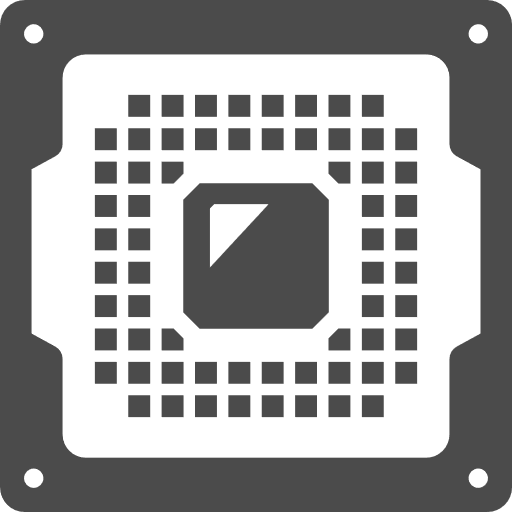 ZisaLog: Beginner’s Guide to Building a Custom PC
ZisaLog: Beginner’s Guide to Building a Custom PC 